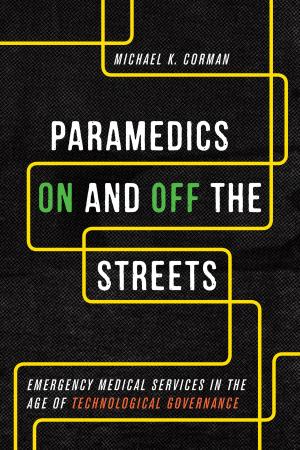The Great Reversal
How We Let Technology Take Control of the Planet
Nonfiction, Science & Nature, Science, Other Sciences, Philosophy & Social Aspects, Religion & Spirituality, Philosophy, Political| Author: | David Tabachnick | ISBN: | 9781442664081 |
| Publisher: | University of Toronto Press, Scholarly Publishing Division | Publication: | February 27, 2013 |
| Imprint: | Language: | English |
| Author: | David Tabachnick |
| ISBN: | 9781442664081 |
| Publisher: | University of Toronto Press, Scholarly Publishing Division |
| Publication: | February 27, 2013 |
| Imprint: | |
| Language: | English |
Every day, we are presented with new technologies that can influence human thought and action, such as psychopharmaceuticals, new generation performance enhancing drugs, elective biotechnology, and gastric bypass surgery. Have we let technology go too far in this respect? In The Great Reversal, David Edward Tabachnick contends that this question may not be unique to contemporary society. Through an assessment of the great works of philosophy and politics, Tabachnick explores the largely unrecognized history of technology as an idea.
The Great Reversal takes the reader back to Aristotle’s ancient warning that humanity should never allow technical thinking to cloud our judgment about what makes for a good life. It then charts the path of how we began to relinquish our deeply rooted intellectual and practical capacities that used to allow us to understand and regulate the role of technologies in our lives. As the rise of technology threatens our very humanity, Tabachnick emphasizes that we still may have time to recover and develop these capacities – but we must first decide how far we want to allow technology to determine our existence and our future.
Every day, we are presented with new technologies that can influence human thought and action, such as psychopharmaceuticals, new generation performance enhancing drugs, elective biotechnology, and gastric bypass surgery. Have we let technology go too far in this respect? In The Great Reversal, David Edward Tabachnick contends that this question may not be unique to contemporary society. Through an assessment of the great works of philosophy and politics, Tabachnick explores the largely unrecognized history of technology as an idea.
The Great Reversal takes the reader back to Aristotle’s ancient warning that humanity should never allow technical thinking to cloud our judgment about what makes for a good life. It then charts the path of how we began to relinquish our deeply rooted intellectual and practical capacities that used to allow us to understand and regulate the role of technologies in our lives. As the rise of technology threatens our very humanity, Tabachnick emphasizes that we still may have time to recover and develop these capacities – but we must first decide how far we want to allow technology to determine our existence and our future.















